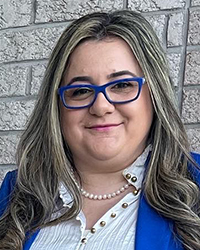 Volunteers with the campus campaign for United Way are preparing to launch the charity’s fundraising drive next week. Back: Trevor Pittman. Front from left: Lilianne Smallwood Dagraca, Soula Serra, Katie Renaud, Rachel Meeke, Sara McNorton, Christine Young.
Volunteers with the campus campaign for United Way are preparing to launch the charity’s fundraising drive next week. Back: Trevor Pittman. Front from left: Lilianne Smallwood Dagraca, Soula Serra, Katie Renaud, Rachel Meeke, Sara McNorton, Christine Young.
She never really appreciated the impact the United Way has on the community until she served in the charity’s offices as a sponsored employee, says Sara McNorton.
“When I learned about the On Track to Success program, I knew I wanted to support it and the young people it is helping find their way,” says the human anatomy lab demonstrator. “I see so many of those students end up on our campus, pursuing an education that may otherwise have seemed out of reach.”
McNorton now volunteers as chair of the campus campaign for United Way, which will launch its fundraising drive next week.
On Track to Success provides supports to high schoolers in target neighbourhoods throughout Windsor-Essex — financial assistance, individual coaching, and training in time management, study tips, and coping strategies.
Currently, 55 graduates from the program are enrolled at the University of Windsor, including 19 first-year students, notes Judy Bornais, associate vice-president external.
“Once the students are here, United Way provides additional support on our campus,” she says. “That is a direct result of the generous donors who have responded to the call. Together, we can ensure that students from vulnerable neighbourhoods feel supported and successful on our campus and in life.”
Canvassers will visit offices next week, delivering donor packages and posters, and employees will receive a personalized email message with a link to contribute online or through payroll deduction.
Public events promoting the campaign include:
- a free kick-off luncheon at noon Tuesday, Oct. 8, outside Chrysler Hall Tower;
- the Women United coffee break at 10 a.m. Wednesday, Oct. 9, in Katzman Lounge, Vanier Hall;
- information sessions on “Why Donate to United Way” at 10 a.m. and 2 p.m. Thursday, Oct. 10, through MS Teams.
Attendees at any of these events will have an opportunity to enter a draw for an extra vacation day. The draw is also open to anyone who purchases a United Way T-shirt or ballcap. All employee donors will be entered into a draw for a one-year parking pass, with an additional pass draw for any new donors or previous donors who increase their contributions.
The incentive prizes will be announced at a wrap-up event at 10 a.m. Friday, Oct. 11.
To show your support and raise awareness, find more details on the campaign website and download the virtual background and email signature graphics to use for the week.







 Riham Al-Saadi, assistant professor in the School of Social Work, will serve as the Palestinian Student Support Advisor. She completed all her studies at the University of Windsor: a bachelor of science in behaviour, cognition, and neuroscience; and master’s and PhD degrees in social work. A Palestinian-Canadian whose family sought refuge in Lebanon in 1948, Dr. Al-Saadi focused her doctoral dissertation on immigrant and refugees’ acculturation process and her positionality as a Palestinian with immigrant and refuge milestones.
Riham Al-Saadi, assistant professor in the School of Social Work, will serve as the Palestinian Student Support Advisor. She completed all her studies at the University of Windsor: a bachelor of science in behaviour, cognition, and neuroscience; and master’s and PhD degrees in social work. A Palestinian-Canadian whose family sought refuge in Lebanon in 1948, Dr. Al-Saadi focused her doctoral dissertation on immigrant and refugees’ acculturation process and her positionality as a Palestinian with immigrant and refuge milestones. Ira Lawrence Cohen serves as the Jewish Student Support Advisor. He is a sessional lecturer in the Odette School of Business, teaching courses in the Master of Management program, including international business and strategy management. Dr. Cohen holds bachelor’s and master’s degrees in communication arts, a postgraduate diploma in international business management, an MBA, and a PhD with a dissertation focus on solving the business challenges and developing the competencies of entrepreneurs through the application of action learning.
Ira Lawrence Cohen serves as the Jewish Student Support Advisor. He is a sessional lecturer in the Odette School of Business, teaching courses in the Master of Management program, including international business and strategy management. Dr. Cohen holds bachelor’s and master’s degrees in communication arts, a postgraduate diploma in international business management, an MBA, and a PhD with a dissertation focus on solving the business challenges and developing the competencies of entrepreneurs through the application of action learning.